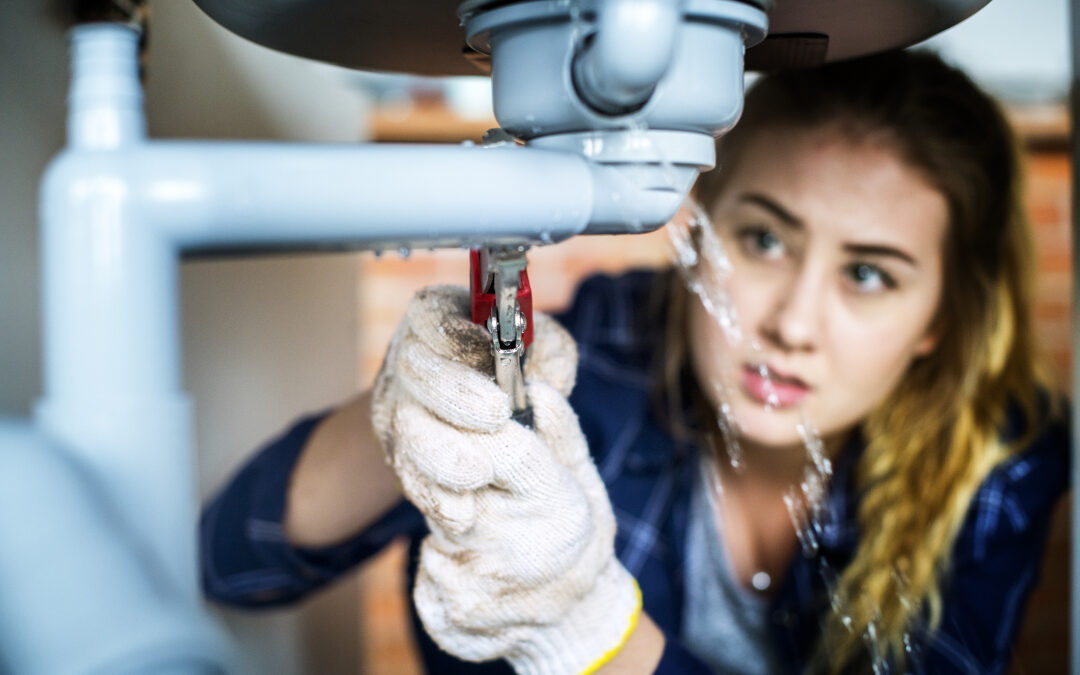During the spring months, Richmond, VA sees a lot of rain showers. More rain means more chances for flooding and water damage to your home.
While you’re planning to protect your house from thunderstorms, that’s only half of your problems. Most water damage insurance claims don’t come from weather or natural disasters, they come from plumbing accidents.
Most insurance policies only cover unpreventable accidents, like a sudden burst pipe or a collapsing roof. If your water damage was preventable, then your claim could be invalidated. That’s why it’s important to maintain your home’s pipes and help prevent water damage in your house.
Check for any leaking pipes or faucets
One of the quickest checks you can do around your home is checking your bathroom and kitchen for any leaks. If your pipes or faucets are leaking, these need to be looked at and repaired ASAP.
If left unchecked, water can pool and lead to mold or permanent water damage to your floor and house foundation. Worst case scenario, the leak grows over time and eventually causes a pipe to burst, flooding your home.
Clean Your Outdoor Gutters
No one likes to do it, but it’s recommended that you clean your home’s gutters at least twice a year. While annoying, this is actually an important step to protect your home from long-term water damage.
When leaves and other debris gather in your gutters, they allow water to build up. Over time, this water can cause damage to your roof through water damage. It can even spill over and pool on the ground, possibly damaging your home’s foundation.
Repair Window and Door Caulk
Throughout your home’s life, parts of it will inevitably crack and change over time. This is especially true of the caulk lining your windows and doors. Unfortunately, this natural deterioration can lead to flooding inside your house.
The spring is the perfect time to go around your house and apply new caulk on your windows and doors. This way, you can repair any cracks or holes in the frames, preventing any rainwater or drafts from entering your home.
Perform Regular Maintenance on Your Sump Pump
Your home’s sump pump is important in preventing flooding in your base level. Usually located in your basement or crawl space, a sump pump helps to reduce flooding by automatically removing excess water.
As the last line of defense from flooding, it would help to make sure it’s working properly. You should inspect and test your home’s sump pump a few times a year, especially before a serious storm.
Prevent Your Pipes From Freezing
During the winter, it’s easy for standing water or external condensation to cause your pipes to freeze. This is especially true for external pipes or ones running along the outside walls of your house.
To prevent your pipes from freezing and possibly bursting, it’s recommended that you cover your pipes in insulation. They’ll remain warm all season long, preventing serious water damage in the process.
Check Your Water Bill
The quickest way to know if something’s leaking in your home is to pay attention to your water bill. If you notice a serious spike in your monthly bill, it’s time to investigate.
While you should still perform regular checks, an expensive water bill can inform you of a leak in a hard-to-reach area.
Protect Your Richmond, VA Home
Water damage can be devastating for any home. From damaging your foundation, growing mold, and generally costing hundreds of dollars in repairs, it can be a hassle to handle.
That’s why it’s important to protect your home with homeowner’s insurance from Sanford Insurance. Our flexible and comprehensive plans are designed with local needs in mind, meaning you’ll get an insurance plan covering your specific needs.
Contact us today to get your free quote!
Sources:
https://www.autohomeboat.com/blog/9-tips-to-avoid-water-damage-to-your-home/
https://www.thespruce.com/how-to-prevent-water-damage-4178450
https://www.iii.org/article/how-protect-your-home-water-damage
https://mikewilsonplumbing.com/2020/09/how-to-prepare-your-virginia-home-plumbing-for-cold-seasons/
